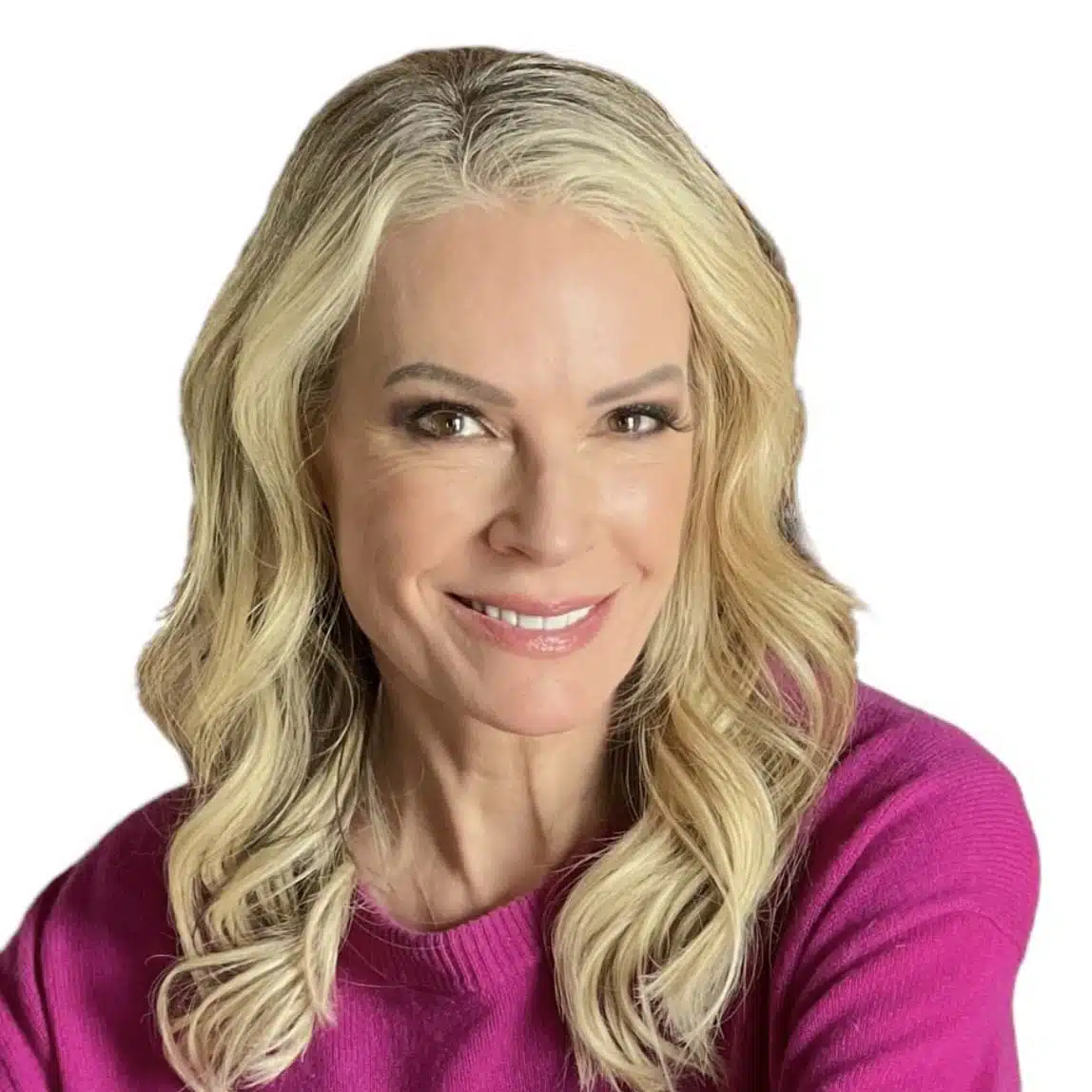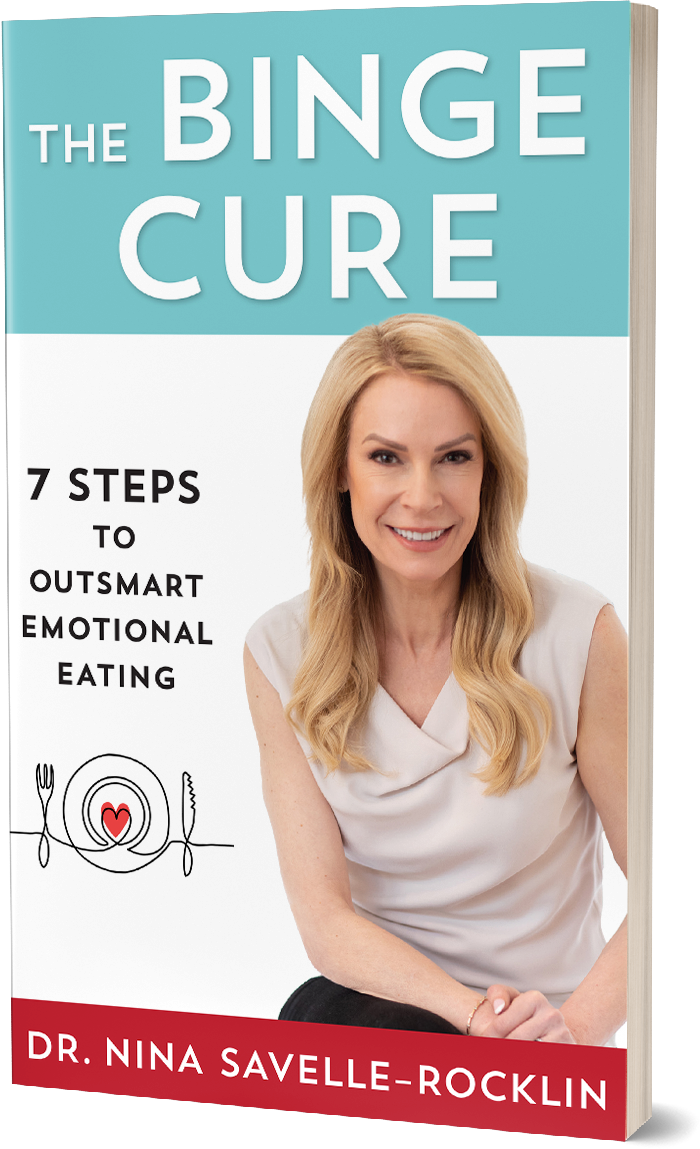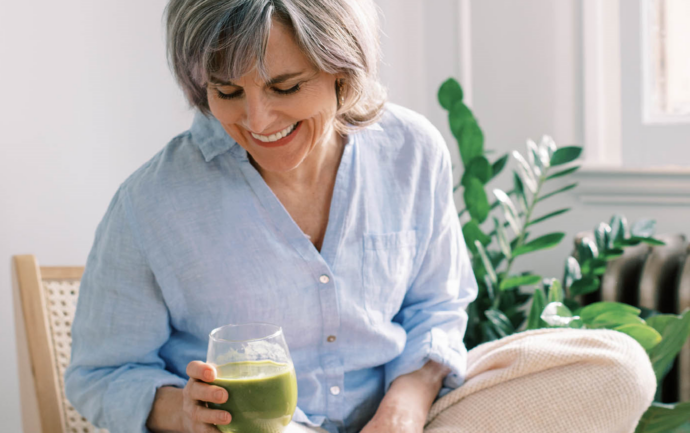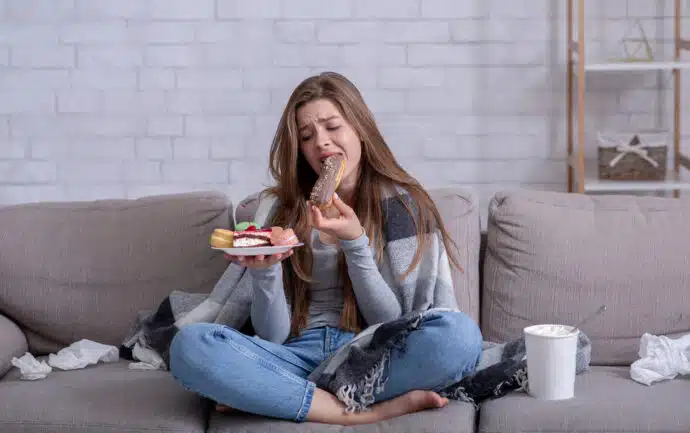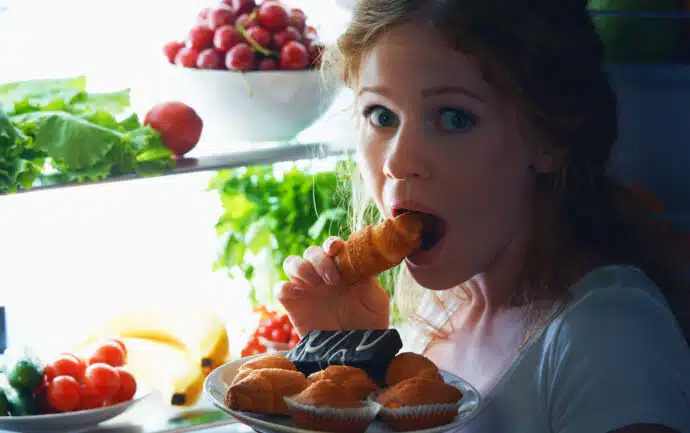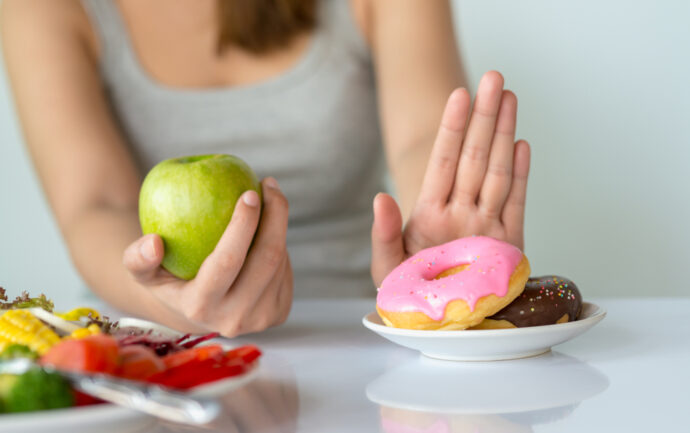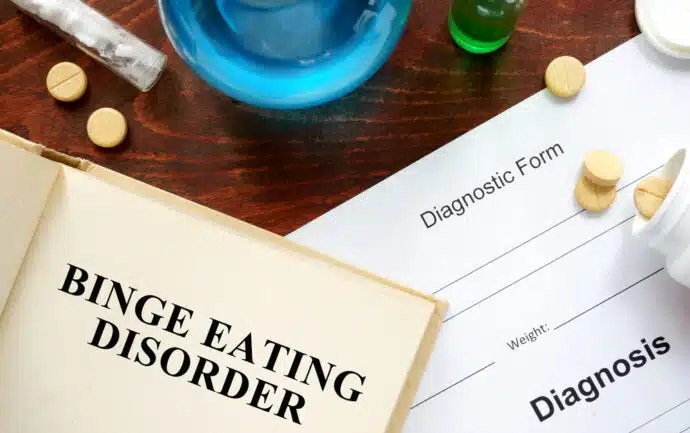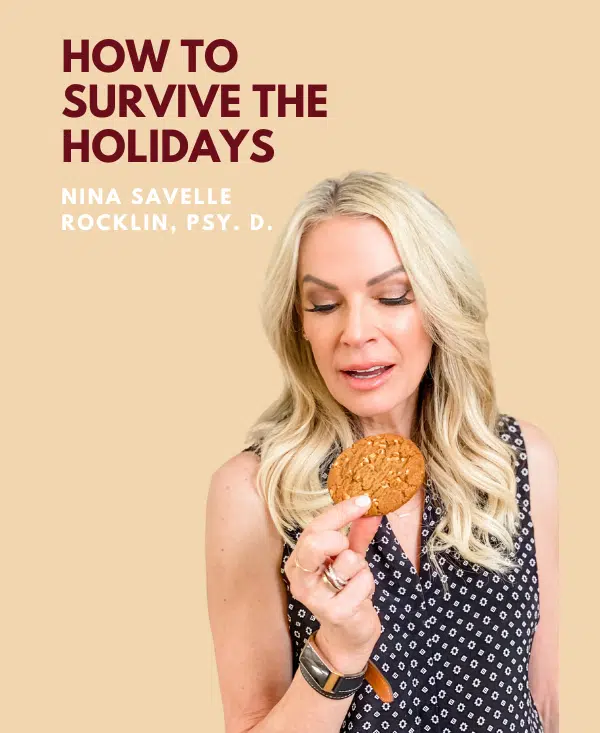Dr. Nina Savelle-Rocklin
Healing from Within: How Understanding Your Attachment Style Can Help You Overcome Binge Eating
Raquel was determined to win over her new boss, an older man known for favoring some employees over others. He was dismissive and even contemptuous toward her, but she was determined to win him over. Most nights, she’d come home from work and order pizza, usually eating the whole pie throughout the evening. As she ate, her mind would drift to her boss, and she’d strategize different ways to win him over.

She said, “I just feel like there’s something I can get from my boss. If I can just stick with it, I know I’ll get him to recognize me.” To understand Raquel’s determination to win over her boss, we have to go back to her childhood. When she was growing up, her father openly favored her older brother.
Raquel could never win over her father. In her job situation, she’s experiencing her boss as a do-over of her childhood. Raquel was hoping to win her father’s approval through her interaction with her boss, who’s essentially a stand-in for her father.
And all that pizza? It’s a way of filling the void inside since she never felt she had her father’s approval.
In our unconscious, authority figures often represent parents. That’s why we sometimes react to our bosses the same way we did to our parents. And, if you had to compete for attention in the past, vying for attention from a boss or not letting a coworker get the better of you can be understood as a repetition from your childhood.
Rivalries at work are often rooted in tensions from the past, and coworkers can sometimes be seen as siblings. It’s all to do with our attempts to heal the original relationship. But when painful or upsetting relationships from the past aren’t healed, those relationships are played out again in the present. The first step to change is to acknowledge these harmful and destructive patterns.
Explain, not blame
Many people resist the idea that something that happened in the past could affect them now. Stan felt this way too. Whenever we talked about his childhood, he would shift uncomfortably in his seat.
“I don’t want to talk about my parents,” he said. “They were good people. I feel guilty talking about them.”
But the truth was, something in Stan’s past was affecting him. When Stan was a kid, he played kickball outside and often got hurt. Whenever he showed his mom one of the nasty scrapes, she dismissed him, saying, “You’re fine. Stop complaining.”
As an adult, when Stan felt hurt or upset, he would tell himself to suck it up and not complain. Instead, he turned to food for comfort. By the time Stan came to see me, he weighed nearly 400 pounds, was in constant pain, and had high blood pressure.
Stan had internalized his mother’s attitude towards both physical and emotional pain. I explained to him that recognizing this connection wasn’t about blaming her; it was about understanding how his past had affected him. Blaming is a victim’s stance. It’s not helpful. But understanding can lead to change.
With time, Stan learned to express his feelings and to stop using food as a way of avoiding his emotions. Eventually, he could heal from his past and improve his present.
Most parents try their best, but sometimes they respond to their children problematically. When we internalize these behaviors, they become part of who we are. Healing from the past can lead to a better present.
Is it always about the past?
To change the present, we have to understand where our beliefs about ourselves came from, which is one tenet of psychoanalytic psychotherapy. When you think of psychoanalysis, you might picture Freud listening to a patient on a couch. But let me tell you, comparing Freud to contemporary psychoanalysis is like comparing a Model T Ford to a Tesla – they’re both cars, but they’re worlds apart.
Psychoanalysis isn’t just one type of therapy. It covers all sorts of theories, philosophies, and techniques that all aim to help people live more freely and authentically. The idea is to help people understand why they act in self-destructive ways and help them create new ways of relating to themselves and others.
When it comes to binge eating, we don’t want to just focus on the behavior, as that won’t change anything. You can go on diet after diet after diet, vow to “be good,” and nothing will change in the long run. Focusing on the behavior of bingeing is like removing a weed. Just yanking up the visible part won’t solve the problem. You need to get rid of the root.
The roots to binge eating are ideas, beliefs, and emotions, including low self-esteem, negative body image, perfectionism, a need for control, emotional distress, stress, anxiety, depression, loneliness, boredom, trauma, and a history of dieting or restriction. These factors can lead to an unhealthy relationship with food and eating as a coping mechanism to numb emotional pain. Binge eating can be a vicious cycle where the painful emotions associated with the behavior fuel further episodes, leading to feelings of shame, guilt, and helplessness.
Recognizing and addressing these underlying factors is crucial in breaking the cycle of binge eating.
One major factor is our relationship style. People can be unpredictable, unreliable, and unavailable. Food, on the other hand, is always predictable, reliable, and available.
Out of sight, out of mind
Deidre* had been in a relationship for eight years. Her boyfriend loved her, was affectionate and committed. Yet, despite his reassurances, Deidre always felt that she was just waiting for the other shoe to drop. She was afraid that, sooner or later, he would leave her.
And, even though they talked about getting married and growing old together, she couldn’t shake this anxiety. Deidre told herself that marriage would be a “setup” and that it would only backfire. To her, it felt like the higher she climbed in life, the farther she would fall.
How did Deidre come to feel this way? Well, she grew up in Australia and had a perfect and idyllic childhood. She spent her days surfing, hanging out with friends, playing volleyball on the beach, and feeling like she was living in paradise.
Then, one day, her parents announced they were getting a divorce. Deidre was blindsided and felt like her world was falling apart. As a result, she grew up expecting every relationship to end suddenly and couldn’t allow herself to trust that her boyfriend was in it for the long haul. The only thing that seemed to calm her down was eating fast food. Whenever she went through a drive-through, she would find a few minutes of peace without worrying about the future.
Deidre ended up with a “Stay close because if I let you go, you’ll leave me” mentality about connections. This is an anxious-preoccupied relationship style. People with this attachment style struggle to trust the reliability of those they care about. They crave constant contact and worry that any time apart could end the relationship. And they need lots of reassurance that their partner is still present for them.
If this sounds like you, then you might worry about losing love if you ever really found it. Even if you’re with someone special, you might feel like it’s not enough. You could be in a constant state of fear that they’ll leave you or that you’re too needy. These anxieties can make your relationship feel shaky, and you may turn to food to fill that emptiness.
We all carry baggage from the past, and it can hurt us big time in the present. But, if you can face your fears and insecurities and work on healing those old wounds, your life can change drastically. Even your eating habits can transform for the better. Once Diedre faced her fears and left her old habits behind, she found comfort in her relationship instead of food.
I don’t need anyone
Even before the pandemic, Rita had an online business and worked from home. Most of her dealings were on the internet so she hardly interacted with real people, but that didn’t bother her at all.
She was a proud mama of three “fur babies” and believed that her dogs were all she needed for company. Rita’s only human contact came from chatting with fellow dog owners at the local park. After work, she always ordered her favorite deep-dish pizza from a local restaurant. She would eat until she was too full to move and then feel guilty and unhappy about her weight.
By eating so much of it, she was filling up a void that she didn’t even know she had. As we dug deeper, we discovered she was scared of getting into a relationship and losing herself. To her, that meant she would have to give up everything she loved to make the other person happy. After all, her mom had given up everything to be with her dad. This was her model for how she imagined relationships.
It was this fear of losing herself that made her averse to any real, meaningful connections. She had a dismissive-avoidant attachment style where she thought, “I don’t need to be close, I don’t want to be close, and I’m keeping my distance.”
People like this often shy away from intimate relationships because they fear that it will lead to rejection, pain, or loss of self. If you avoid closeness like this, you might feel lonely and disconnected, which can make you more prone to using food to fill the void.
Rita challenged the belief that being close to others would mean sacrificing her independence or sense of self and began taking small steps toward building connections. By spending time with people in a way that felt comfortable to her and allowed for some level of connection without feeling overwhelmed, she found herself having much less pizza but actually enjoying it more, as she was eating for dinner, not for distraction.
He went from hot to not
Shelby had a thing for bad boys. She fell hard for a married guy, chased a man who only went for brunettes (and she was blonde), and dated someone who lived in Dubai, even though he spent a few weeks a year in Southern California, where Shelby lived.
Whenever a “boring” guy showed interest, she ran in the opposite direction. And then, she met a guy who was lukewarm about her. That’s when Shelby tried everything in the book to make him like her. And it worked. The guy fell for her, and they started dating. After several months, he wanted to make things exclusive. That’s when Shelby ditched him. For her, he stopped being hot as soon as he wanted a genuine commitment.
Like Shelby, some people with a fearful-avoidant attachment style fear getting close. They might fall for someone who is already taken or who lives too far away to see all the time. Or, they choose workaholics or people who are disinterested. They want love, but they also fear it, and so they spend their time in an endless cycle of chasing but never really catching someone. If the guy or girl does show interest, that’s when they often change their minds.
There are different reasons for this kind of behavior. Some like the thrill of the chase but can’t bear the idea of a real relationship. Or, as we discovered with Shelby, they don’t feel worthy of love, and so they avoid it at all costs.
Yet, Shelby was sad because she really did crave connection. Whenever she felt lonely, she binged to the point of feeling completely stuffed. Instead of feeling fulfilled in her relationships, Shelby filled up with food.
Shelby faced her fear of getting close to people and saw how relationships could satisfy her instead of scare her. The more she allowed herself to connect with others, the less she needed to eat to fill the void. Now Shelby’s seeing someone new, and although it’s sometimes uncomfortable, she’s learning to enjoy feeling close. It’s possible for all of us to face our fears and enjoy the richness of love.
Of course you love me
Have you ever wondered what it’s like to feel truly loved and secure? My friend Tommy is one of the countless actors from all different parts of the world who come to Hollywood to try to make it big in movies and TV. Auditioning can be stressful since, most of the time, they’re rejected. In fact, it’s typical for working actors to audition for twenty or more gigs before landing one. So how is it that some actors manage to book nearly every role they audition for?
Tommy is one of those lucky actors. He’s honest enough to admit he’s no more talented than others, but he doesn’t let that bother him. Unlike many other actors, he approaches each and every audition head-on, confident that he’ll be liked and appreciated. And guess what? He’s right! It’s that mindset of self-assurance that makes him relaxed and comfortable, which in turn is why he succeeds.
Want to know his secret? Tommy’s family was always there to love and support him. That sense of being irreplaceable and cherished has carried with him throughout his life, in both personal relationships and work. He is lucky enough to have a secure attachment style.
When you truly feel lovable, it’s natural to believe others will feel the same. Being comfortable with ourselves and with others allows us to have intimate, meaningful relationships that can really enrich our lives. When you have true inner peace and fulfillment, you don’t use food as a substitute for love. Cultivating a fulfilling relationship with yourself and the people around you can really bring more love, light, and joy into your life.
Consider which of these relationship styles resonates with you. Answering this question is a great place to start your journey to making peace with your fears and with food. When you identify which relationship style fits you and examine how you developed it, you can work to create lasting change.
Which relationship style do you relate to the most? Let me know in the comments below.
Ready to transform your relationship with food?
Join Dr. Nina's newsletter and receive:
• Expert tips on overcoming emotional eating
• Strategies for sustainable weight loss
• Exclusive content not found anywhere else
Don't miss out on the latest breakthroughs in binge eating!
The Author
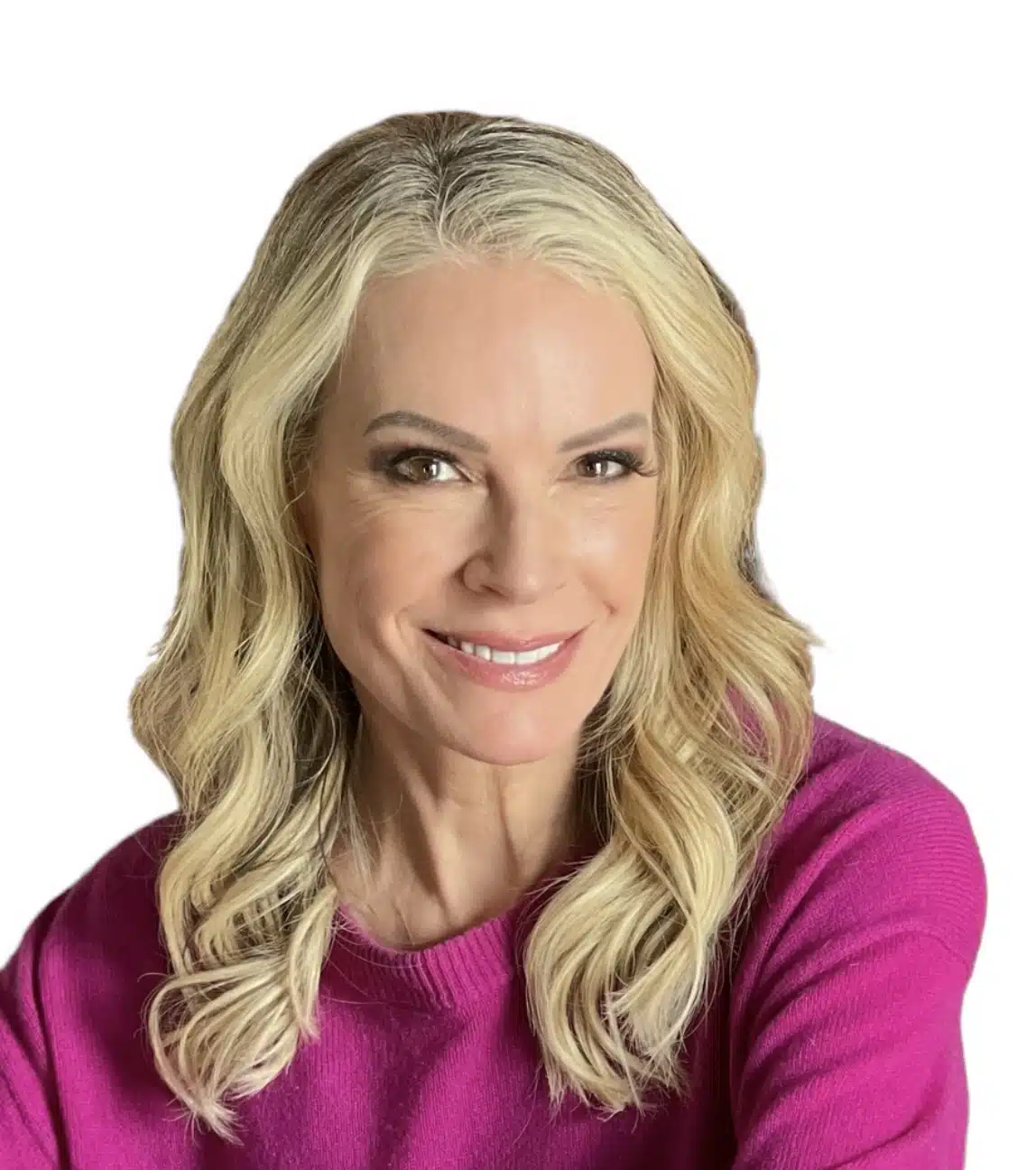
Dr. Nina Savelle-Rocklin is a renowned author and podcast host and one of the nation’s leading psychoanalysts known for the psychology of eating. Her signature message of, “It’s not what you’re eating, it’s what’s eating ‘at’ you” has resonated with hundreds of thousands of listeners from around the globe in 40 countries. As founder of The Binge Cure Method, she guides emotional eaters to create lasting food freedom so they can take back control of their lives and feel good in their bodies.
Related Blogs
